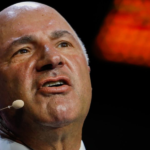Because of the dollar’s status as the world’s reserve currency and confidence from investors that America’s government will always pay its bills, the U.S. borrows at much better rates than its underlying finances would normally allow.
More current data, however, might already be flashing a warning sign.
Usually, monetary authorities will park the cash they generate from selling U.S. debt in the New York Fed’s reverse repurchase facility, where they receive Treasuries as collateral.
That’s not been the case this time, though. Foreign participation in the facility has fallen by $15 billion since late March. All told, that suggests U.S. assets held by foreigners at the Fed have dropped by around $63 billion in just over two months.
“It looks like a net outflow of those asset holdings from the Fed balance sheet,” Swiber said.
This drop is unusual, Swiber and Craig noted, considering the dollar’s big decline in 2025. Typically, these types of sales happen when the dollar is strong.
Monetary authorities, Swiber explained, might sell their dollar holdings and invest elsewhere for cheap. Or nations like Japan, India, and Turkey might sell the greenback and buy back their own currency to prevent it from falling further against the dollar.
That’s not the case right now, however, with the dollar down 9% compared with the basket of currencies in the DXY index.
“So that’s kind of why this is particularly strange, right?” Swiber said. “The sales are not happening to defend currencies or to rebalance.”
Instead, Swiber and Craig wrote, it looks like central banks and other official entities are diversifying away from U.S. assets. Rising trade tensions, of course, give nations more reason to lower their dependence on the world’s largest economy.
“The official sector really hasn’t been buying Treasury securities en masse for a number of years,” Swiber said. “Their holdings have pretty much been relatively flat since COVID.”
Now, the sector is also selling.
If foreign private holders like banks and institutional investors follow suit, Swiber is worried about who will pick up the slack.
“Foreign investors were some of the biggest buyers that we saw in Q1,” Swiber said.
If there are worries about them going forward, she added, that doesn’t bode well for the bond market.









